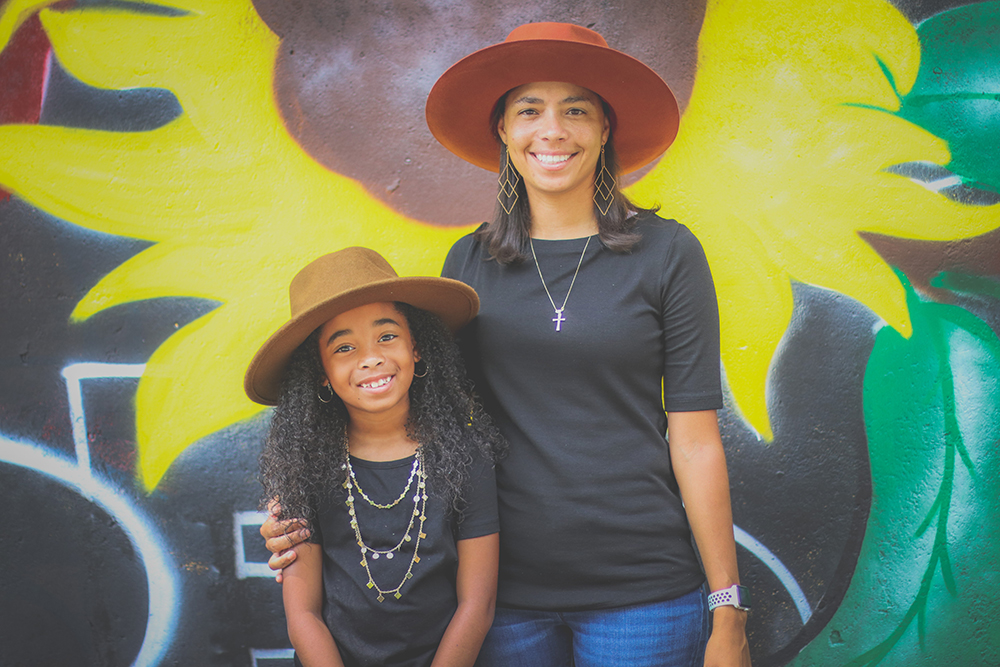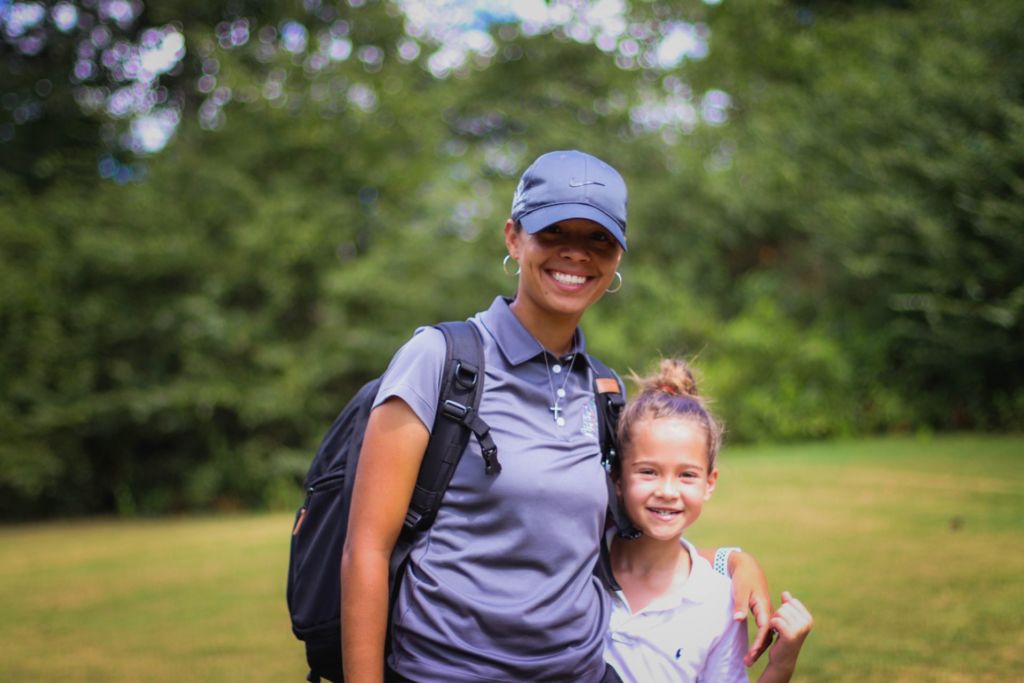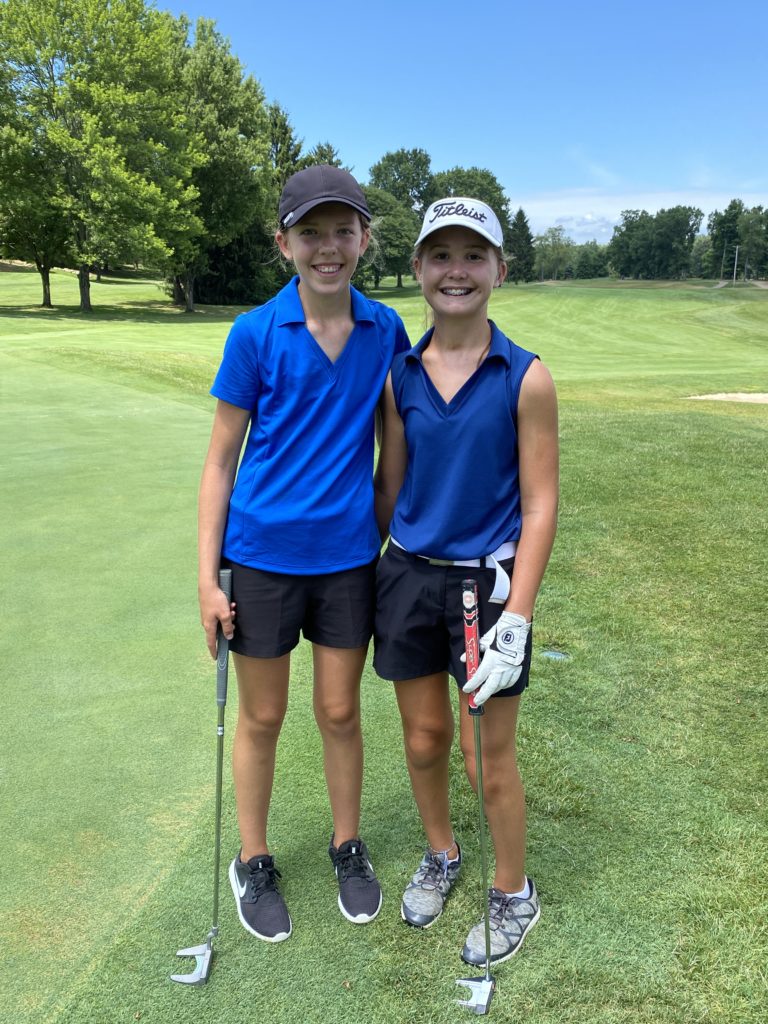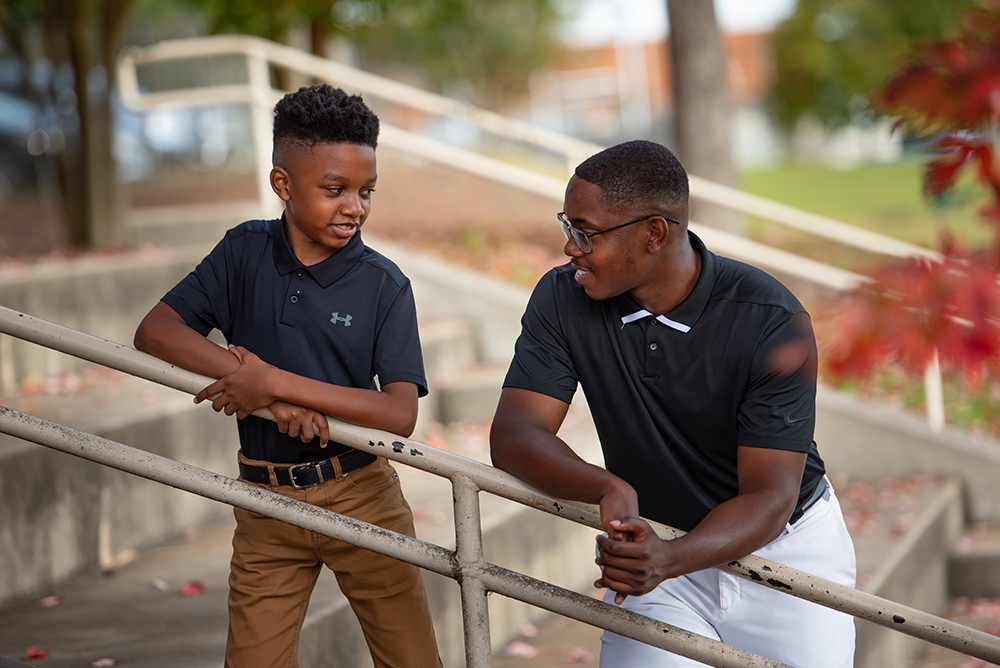May is Mental Health Awareness Month – a great time to check in with yourself and consider how you might be able to support others.
“Showing up for others means that you are there for someone when they need you,” explained Emma Laker, a participant with First Tee — Greater Cincinnati & Northern Kentucky. “You show kindness by helping others and not just thinking of yourself. You give people the respect they deserve.”
Mental health challenges can affect anyone – from professional golfers to friends and family. In 2019, a third of high school students reported persistent feelings of sadness or hopelessness, according to the Centers for Disease Control and Prevention.
All of that is to say: If you’re struggling, you’re not alone.
Be there for your team and ask for help when you need it
Emma said it feels good to have people she can count on. “It shows me that I am surrounded by friends and family that love me no matter what. I can look up to my friends and family to help me through the rough times,” she said.
Who is on your go-to team? Maybe it’s family, friends, teachers and coaches. Building strong relationships is one of the best strategies for improving your mental health, according to the CDC.
Game Changers seek out good groups of people that lift them up and allow them to feel safe to be themselves.
If you’re feeling alone, there are organizations that can help.
Talk about your feelings
It takes lots of courage to speak out about mental health issues you may be facing. By sharing your challenges, you’re not only helping yourself but others, too.
Recently prominent members of the sports world, from Simone Biles to Michael Phelps, have talked about their own struggles and the importance of destigmatizing mental health challenges. No one should feel embarrassed or scared to acknowledge the difficulties they’re facing.
Talking about your problems is the best way to find help! Some mental health situations do require bigger interventions, which is why it’s important to talk to adults about how you’re feeling.
Develop a healthy mindset
As we’ve all seen over the last few years, there are periods when unexpected challenges appear. During the COVID-19 pandemic, many kids experienced the difficulties that come with virtual school, family financial troubles and even losing loved ones.
Fortunately, there are ways to help prepare for tough times.
- Stay positive: Don’t be too hard on yourself when things don’t go perfectly and take a few moments to feel proud of your victories – no matter how small.
- Do your best: Giving your best effort helps you realize your capabilities.
- Give back: Emma volunteers at her church and school, and it feels amazing, she said. “I realize how extremely lucky and blessed I am to have all the love and support of my family and friends. When I am helping others, I feel like I am giving them some of my joy and happiness.”
- Take ownership: It’s normal to feel anxious sometimes but remember that you have control over many of the challenges you face. Practicing problem solving tools like STAR – Stop, Think, Anticipate, Respond – can help you feel empowered when future difficulties arise.


 Can you give an example of a challenge you have faced in your career and how have you worked to overcome it?
Can you give an example of a challenge you have faced in your career and how have you worked to overcome it?

